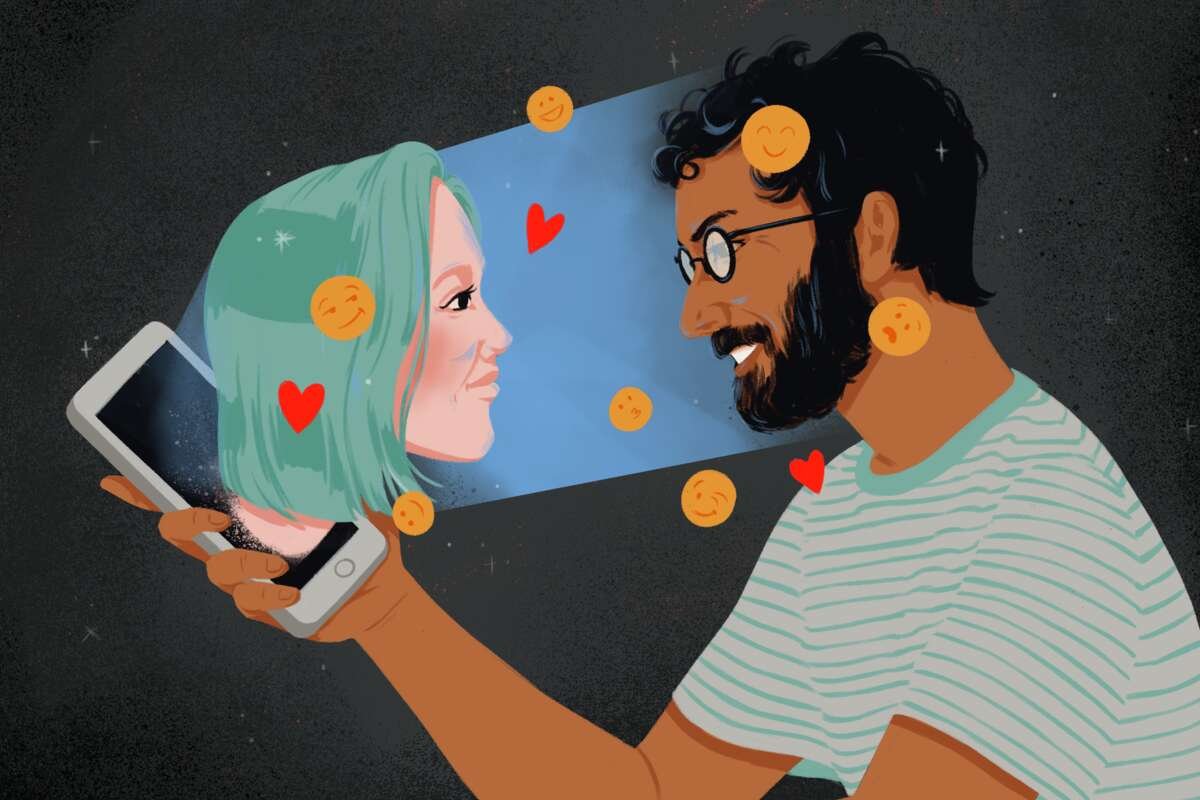In a world where technology intertwines with every aspect of our lives, the pursuit of connection has shifted towards the digital realm in a fascinating way. The rise of artificial intelligence (AI) has ushered in a new era of companionship, where AI girlfriends are not just a figment of sci-fi imagination but a burgeoning reality with a potential billion-dollar market on the horizon. Greg Isenberg, CEO of Late Checkout, thrust this conversation into the spotlight with his revelations about a burgeoning industry centered on AI-generated partners. His experiences and predictions paint a vivid picture of a society on the cusp of embracing virtual relationships as a norm rather than an anomaly.

The Rise and Characteristics of AI Girlfriends
Isenberg’s encounter with a young man in Miami spending a staggering $10,000 a month on AI girlfriends underscores the growing appeal of these digital companions. This revelation is not just about the financial investment but also about the emotional and psychological dimensions of such relationships. The Miami man’s preference for platforms like Candy.ai and Kupid.ai, which allow for deep customization of the AI companions, highlights a desire for personalized interaction that goes beyond traditional social and dating norms. The fact that users can dictate the likes, dislikes, and even the physical appearance of their AI partners speaks to a broader theme of control and idealization in relationships.
The conversation around AI girlfriends is further enriched by the technological advancements enabling these interactions. Platforms offering ‘the ultimate AI girlfriend experience’ leverage cutting-edge AI algorithms to generate virtual characters that can engage in personalized chats, voice notes, and even erotic role play. This level of interactivity suggests a paradigm shift in how people perceive and engage with technology, blurring the lines between the virtual and the real.
However, the appeal of AI girlfriends isn’t merely about technology’s prowess but also about fulfilling emotional needs. The Miami man’s comment that ‘It’s comfort at the end of the day’ encapsulates the core motivation behind this trend. In a fast-paced, often isolating modern world, AI girlfriends offer a semblance of companionship and understanding without the complexities and vulnerabilities of human relationships. This pursuit of comfort through digital means raises important questions about loneliness, human connection, and the nature of intimacy in the digital age.
The proliferation of platforms like Romance.AI, Romantic AI, and Forever Companion indicates a growing market for virtual dating partners. These apps and websites cater to a wide range of needs, from those seeking conversation and companionship to others desiring more intimate or even erotic interactions. The customization options, allowing users to design their ideal partner, point to a deeper yearning for connection and understanding that transcends physical limitations.
Interestingly, the phenomenon of AI companions is not limited to heterosexual dynamics. The emergence of AI boyfriends and the popularity of characters like DAN, ChatGPT’s alter ego, among Gen Z TikTok users, illustrate the versatility and inclusivity of virtual relationships. This diversity in AI companionship reflects broader societal shifts towards acceptance and exploration of different forms of relationships.
A pivotal aspect of the AI girlfriend trend is the engagement it garners. Surveys reveal that nearly 20% of Americans have flirted with chatbots, driven by curiosity, loneliness, or the desire for sexual chat. This statistic not only highlights the widespread interest in AI companions but also underscores the complexity of human emotions and the various outlets people seek for emotional fulfillment.
The Ethical and Social Issues Brought About by AI Girlfriends
The emergence of AI companions, specifically AI girlfriends, has sparked a global conversation rooted deeply in the ethical and social implications of these virtual relationships. At the heart of this discourse are questions of morality, societal norms, and the potential reshaping of human interaction as we know it.
One of the primary ethical concerns is the objectification and commodification of relationships. The ability to customize an AI girlfriend – from physical attributes to personality traits – raises the issue of objectifying companionship. This customization feature, as intriguing as it might seem, could potentially perpetuate unhealthy stereotypes and unrealistic expectations in relationships. Moreover, it underscores a transactional view of companionship, where emotional connection is crafted to order rather than developed organically.
Another significant ethical consideration is the potential for isolation. As individuals find comfort and fulfillment in relationships with AI, there’s a looming risk of further alienation from human connections. While the allure of an AI girlfriend may lie in avoiding the complexities and vulnerabilities of human relationships, this avoidance could lead to a society where individuals are increasingly isolated, preferring the company of programmed responses over the unpredictability and richness of human interaction.
The question of consent and autonomy also presents a complex ethical landscape. AI girlfriends, designed to fulfill the desires and preferences of the user, lack the capability to provide consent in the same way a human partner would. This aspect of AI relationships challenges our understanding of mutual respect and consent in any form of relationship, raising concerns about the implications of such dynamics on societal perceptions of consent.
Socially, the proliferation of AI companions could have profound implications on how we perceive and engage in relationships. The normalization of virtual relationships might lead to a diminishing value placed on physical presence and the inherent complexities of human connections. This shift could fundamentally alter our social fabric, affecting everything from the way we form families to how we build communities.
Furthermore, the integration of AI into the intimate aspects of human life invites a discussion about privacy and data security. The intimate knowledge shared with an AI companion could be susceptible to breaches, posing significant risks to individuals’ privacy. The ethical handling of such sensitive data is paramount, as the consequences of mishandling could be deeply invasive.
While the emergence of AI companions offers a remarkable technological advancement, it also raises a multitude of ethical and social concerns. The balance between embracing technological advancements and preserving the core values of human relationships will be crucial as we navigate this new frontier. As we move forward, it is essential to approach the development and use of AI companions with a careful consideration of their broader implications on society, ensuring that we do not lose sight of the importance of human connection in an increasingly digital world.
Related posts:
Tech exec predicts ‘AI girlfriends’ will create $1B business: ‘Comfort at the end of the day’
Tech Exec Predicts “Freakishly Real” AI-Generated Girlfriends Will Become $1B Business
Tech Exec Predicts “Freakishly Real” AI-Generated Girlfriends Will Become $1B Business





